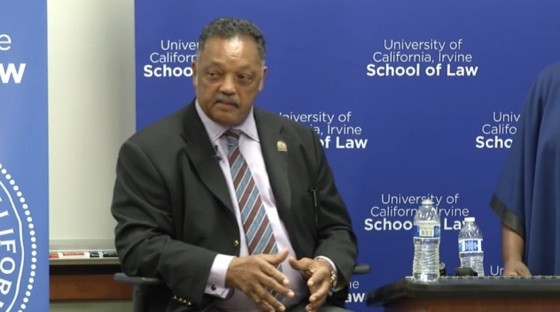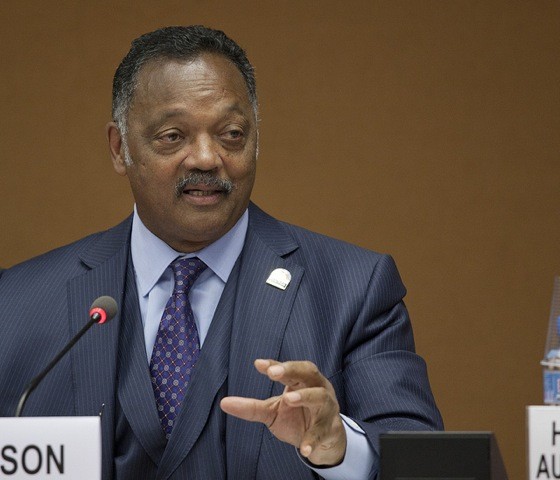
UPDATE NO. 2, NOV. 20, 7:30 A.M.: During the discussion and exchange with audience members at Wednesday's UC Irvine law school panel on “The Constitutional Implications of Ebola: Civil Liberties & Civil Rights in Times of Health Crises,” dean Erwin Chemerinsky said, “It's important that constitutional decisions be based on scientific information and not fear.”
]
Under the law, someone should only be quarantined if they are symptomatic of a disease, he added.
Chemerinsky, one of the country's leading constitutional scholars, was horrified that Maine Gov. Paul LePage, who wanted to quarantine a healthcare worker who'd returned from Africa even though she displayed no symptoms of Ebola, and a judge who ruled against quarantining her both said she could be subjected to vigilantism. “That's where there is going to be the threat to privacy,” the law school dean said. “That's where there is going to be the threat to civil liberties and where it's going to come from.”
Later he would add the U.S. Supreme Court “has done a terrible job in times of crisis, often giving in to public hysteria.” As an example, he brought up the court upholding internment camps for Japanese Americans during World War II.
“Poverty is a weapon of mass destruction,” civil rights leader Jesse Jackson said, “and racism has become the norm.” He brought up coal miners dying daily from black lung wanting affordable healthcare for themselves but not Obamacare for the otherwise uninsured. “They want the omelet but not the eggs.”
Later in the program, Jackson said, “We cannot let America undo 10 million people getting healthcare. … That's something we're going to fight for.”
It amazed him that undoing Obamacare is being talked about from one side of mouths raising fears about the spread of Ebola from the other side.
Chemerinsky called on lawyers and law school professors to get out into communities to tell the public they need to protect their rights “now,” during a time when there is hysteria about the spread of disease. A time may come when quarantines are necessary, he warned, but the decision to create them must be based on medical evidence, not fear.
“Somebody must make sense against the odds,” Jackson chimed in. “Deep water does not drown you. You drown because you stop kicking.” He said we are not living in a “post-racial” society but a “post-Selma” one, adding that many who fought to get Barack Obama elected “stopped kicking” after he won.
Dr. George Woods Jr. of the American Psychiatric Association and president-elect of the International Academy of Law and Mental Health, wondered aloud where pharmaceutical companies come in to stop the spread of Ebola. He pointed out the disease has been known since 1969 and that treatments and vaccines to stop its spread could have been developed by now. He suggested Big Pharm did not “enter that breach … because those folks who get Ebola are not of value.”
Those folks would be Africans, which Andrew Noymer, UCI associate professor of public health, says points to the fact that the world “needs to bolster health-care systems in developing countries.” Had those systems been better equipped, “it would have helped get the upper hand on this virus sooner,” he said, noting the next virus may be far worse.
A member of the audience raised the question of how the spread of Ebola might influence the next presidential election.
“If Ebola spreads through this country in the next two years, it will be the most important political issue of 2016,” Chemerinsky predicted.
If Ebola is contained to three countries in Africa, it will not be a presidential election issue, he added, but if the virus spreads throughout the continent and then the United States, “it can become the dominant issue, and then it really does become the politics of fear.”
Watch the whole thing here:
[

UPDATE NO. 1, NOV. 19, 6 A.M.: Jesse Jackson's appearance with a UC Irvine School of Law panel addressing “The Constitutional Implications of Ebola: Civil Liberties & Civil Rights in Times of Health Crises” will be live streamed today starting at 3:30 p.m. Click here: https://www.youtube.com/watch?v=0MvpF3DOp4w.
ORIGINAL POST, NOV. 6, 10:03 A.M.: Jesse Jackson is coming to UC Irvine in a couple weeks to speak on a panel addressing “The Constitutional Implications of Ebola: Civil Liberties & Civil Rights in Times of Health Crises,” the School of Law announced this morning.
Joining the civil rights leader and two-time presidential candidate on the panel Nov. 19 are: UCI law school dean Erwin Chemerinsky; UCI Chancellor's professor of law Michele Goodwin; UCI associate professor of public health Andrew Noymer; and Dr. George Woods Jr. of the American Psychiatric Association and president-elect, International Academy of Law and Mental Health.
The schedule, per UCI:
3:30 p.m. Panel discussion: Noymer will speak on “Public Health in Times of Emergency: A Look Back on HIV, Tuberculosis & Threatening Diseases.” Woods will talk about “Cognitive Biases & Fear in Times of Natural Disaster & Health Crises.”
4 p.m. Armchair discussion: Jackson and Chemerinsky, two of the foremost thinkers on civil liberties and civil rights, will discuss the law's role in protecting, promoting and balancing those rights and liberties in times of perceived and actual national threat and disaster. Goodwin, director of the UCI School of Law's Center for Biotechnology & Global Health Policy, will moderate.
5 p.m. Press conference
The place is Room 1111 of the UCI School of Law's Education Building.
Email: mc****@oc******.com. Twitter: @MatthewTCoker. Follow OC Weekly on Twitter @ocweekly or on Facebook!

OC Weekly Editor-in-Chief Matt Coker has been engaging, enraging and entertaining readers of newspapers, magazines and websites for decades. He spent the first 13 years of his career in journalism at daily newspapers before “graduating” to OC Weekly in 1995 as the alternative newsweekly’s first calendar editor.

